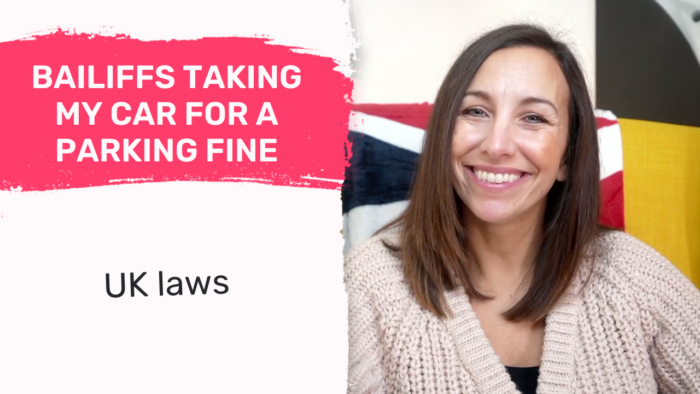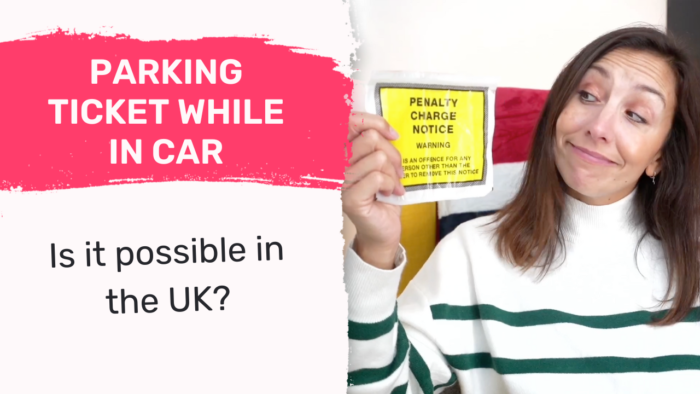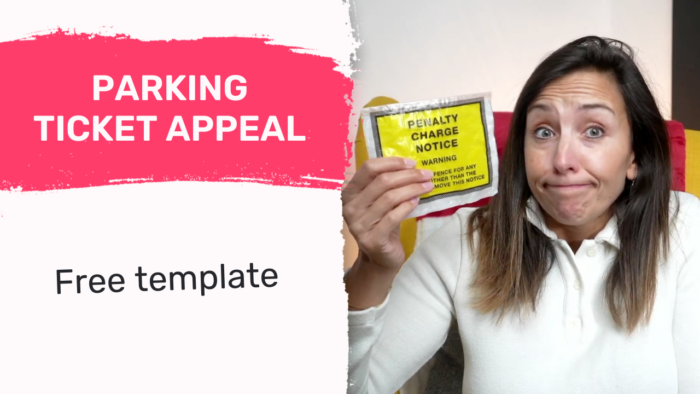Can Bailiffs Take My Car for a Parking Fine? (UK Laws)

Have you received a parking ticket that you’ve not paid, and now you’re worried about what might happen next?
You’re not alone. Each month, over 32,000 people visit this website seeking help with tickets and fines. It can be a worrying time, but we’re here to help with clear and simple advice.
In this article, we’ll explain:
- The difference between Penalty Charge Notices and Parking Charge Notices
- What happens if you ignore these notices
- How to appeal against a parking ticket
- When bailiffs might visit your home because of a parking fine
- How to stop your car from being taken away by bailiffs
Our team has lots of experience with parking tickets and fines. We know how it feels to be in your shoes, and we’re here to guide you through the process.
Do You Have to Pay?
In some circumstances, you might have a legitimate reason not to pay your fine.
It’s a bit sneaky, but the last time I needed legal advice, I paid £5 for a trial to chat with an online solicitor called JustAnswer.
Not only did I save £50 on solicitor feeds, I also won my case and didn’t have to pay my £271 fine.
Chat below to get started with JustAnswer
In partnership with Just Answer.
What Happens if You Don’t Pay a Parking Charge Notice?
When you don’t pay a parking charge notice, the consequences can vary. Generally, ignoring a private parking fine can lead to increased fines and potential legal actions.
In the case of private parking tickets, ignoring them can lead to the debt being treated as unpaid, and collection efforts may escalate, including potential legal action. It’s advisable to address parking charges promptly to avoid escalating fees and potential legal consequences.
What Happens if You Don’t Pay a Penalty Charge Notice?
Penalty charge notices usually give you 28 days to pay the fine or appeal the notice. If you do not act within this time frame, local regulations determine the consequences.
It is common for the penalty charge to increase by about 50% after 28 days of non-payment. A Notice to Owner, Charge Certificate, or Warrant of Control (Warrant of Execution) can be issued if the PCN remains unpaid for an extended period.
This might lead to additional charges, court costs, or enforcement actions. It’s important to review the specific regulations in your area and consider paying the fine or appealing the notice to avoid escalating penalties and potential legal actions, and ultimately, a bailiff visit for them to take your car.
Can Bailiffs Take Your Car Away?
Yes, bailiffs, also known as enforcement agents, can take your car under certain circumstances if they are collecting a debt you haven’t paid. They have the authority to seize belongings to recover the owed debt. However, there are limitations and protections in place.
You can prevent bailiffs from taking your car by parking it in a locked garage, on private property, or on a friend’s land. If you have a disabled person’s car or a vehicle that’s essential for your livelihood, it might be protected from seizure.
Seek debt advice, contact your creditors for repayment plans, and consider formal debt solutions to prevent such actions. Remember, understanding your rights and seeking guidance can help you navigate these situations effectively.
Successful Appeal Case Study
Situation
| Initial Fine | £100 |
| Additional Fees | £171 |
| Total Fine | £271 |
The Appeal Process
Scott used JustAnswer, online legal service to enhance his appeal. The trial of this cost him just £5.
| Total Fine | £271 |
| Cost of legal advice | £5 |
JustAnswer helped Scott craft the best appeal possible and he was able to win his case.
Scott’s fine was cancelled and he only paid £5 for the legal help.
In partnership with Just Answer.
When Will Bailiffs Visit Your Home Because of a Parking Fine?
If you do not pay your parking fine, bailiffs may visit your home. This is because if you don’t pay your debts, which include parking fines, council tax bills, court fines, and county court judgments, a bailiff, also known as an enforcement agent, can visit your home.
However, they are required to follow specific procedures and provide notices before visiting. For parking fines, here are some key points:
- Bailiffs should give you seven days’ notice before their first visit, according to statutory regulations.
- Before the bailiff’s visit, you might receive letters from debt collection agencies.
- If you receive a letter from bailiffs indicating their intent to visit, don’t ignore it. Ignoring the letter could lead to further financial complications.
- Bailiffs need to follow proper notification procedures, and if they fail to do so, enforcement might not succeed.
- A court order is generally required before bailiffs can seize your property, including your car.
- Private parking operators can’t issue bailiffs directly, but they can pursue debts through the County Court.
Join thousands of others who got legal help for a £5 trial
Getting the support of a Solicitor can take a huge weight off your mind.
Reviews shown are for JustAnswer.
Appealing Against a Parking Penalty Charge Notice
If you wish to appeal against an official parking penalty charge notice, you can follow the steps and advice I have given, below.
- Write an appeal letter – Write to the council or organisation that issued the PCN, clearly explaining why you object to the charge. Include your personal information, vehicle registration number, and PCN number. You can often make an informal appeal for free.
- Gather evidence – Collect evidence that supports your case, such as photos, witness statements, or any relevant documents. Submit these along with your appeal to increase your chances of success.
- Challenge within 14 Days – If you challenge the PCN within 14 days of receiving it and your challenge is rejected, you might only have to pay 50% of the fine.
- Independent tribunal appeal – In some cases, if you believe the PCN is unjust, you can appeal to an independent tribunal. This applies if you’ve already gone through the initial appeal process and were unsuccessful.
- Specific grounds for appeal – There are specific grounds on which an adjudicator can instruct a local authority to cancel a PCN. Familiarise yourself with these grounds to strengthen your appeal. Give the reason for the appeal, such as the 5-minute rule not being followed.
- Online representation – Some authorities, like Transport for London, allow you to challenge a PCN online by making a representation.
Remember to include all necessary details, and evidence, and follow the specific procedures outlined by the issuing authority to maximise your chances of successfully appealing the parking penalty charge notice.
Appealing Against a Parking Charge Notice
If you want to appeal a private parking fine, follow the steps and use the advice that I have given, below.
- Payment and guilt – Once you make a payment, it’s generally understood that you accept guilt, and the case is closed.
- Appeal within the given time frame – Typically within 14 days to ensure you might only have to pay 50% of the fine if your appeal is rejected.
- Write an appeal letter – Write to the issuing authority (council or private operator) clearly explaining your objections and reasons for appealing the PCN. This is known as making a formal appeal[^1^][^6^].
- Include evidence – Submit all relevant evidence to support your appeal. Include details like your address, vehicle registration number, and the PCN itself[^2^].
- Internal appeals – If appealing a private parking charge, follow the operator’s internal appeals process. For council-issued tickets, you might need to follow specific procedures set by the council.
Hire a Parking Solicitor for less than a coffee.

If you’re thinking about appealing your parking ticket then getting some professional advice is a good idea.
Getting the support of a Solicitor can make your appeal much more likely to win.
For a £5 trial, Solicitors from JustAnswer can look at your case and help you create an airtight appeal.
In partnership with Just Answer.


